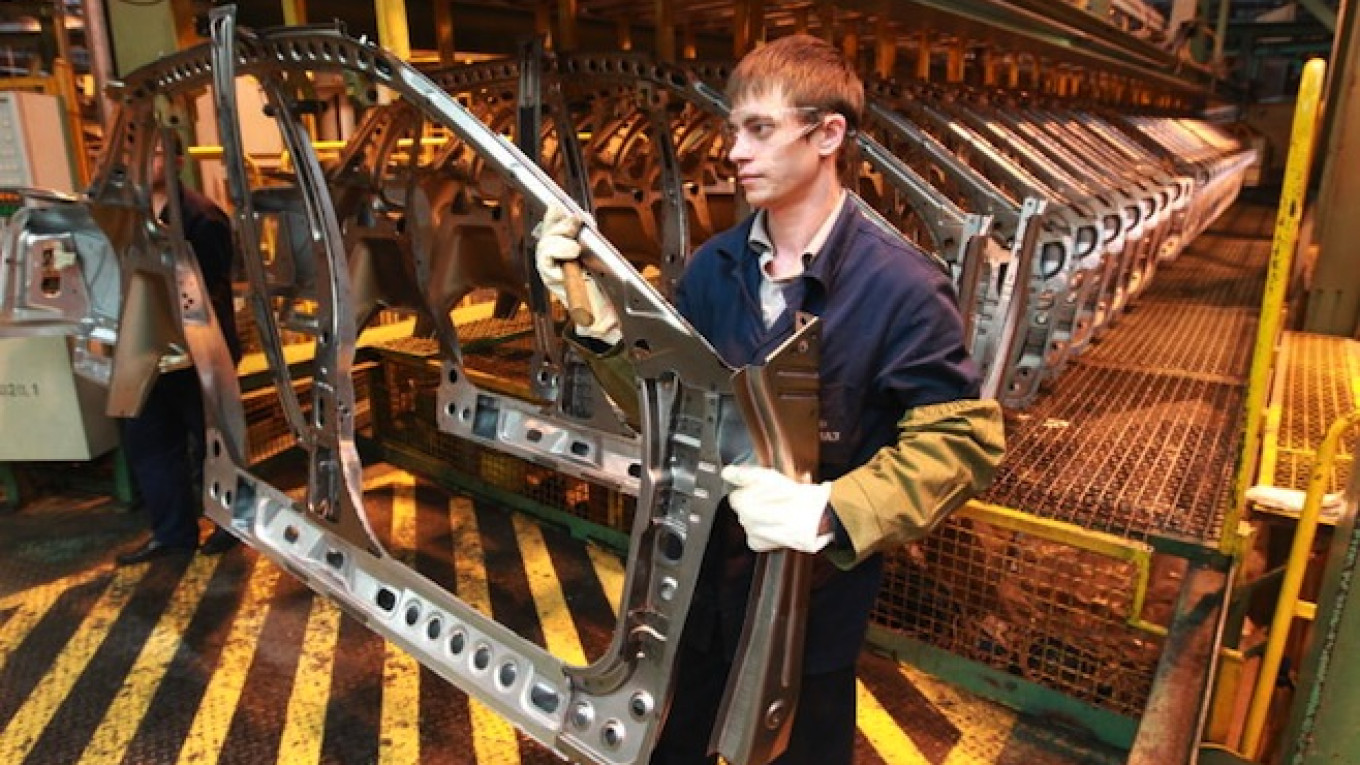St. Petersburg's car plants could face closure as Turkish auto components are stranded at the border after the introduction of Russian sanctions against the country, the Interfax news agency reported Friday, citing the city's deputy head Sergei Movchan.
Since Russia imposed sanctions on Turkey last month over the downing of its warplane near the Syrian border, Turkish goods have been blocked from entering Russia. This is causing difficulties for St.Petersburg's car plants and suppliers, Movchan said in a letter to Russia's Federal Customs Service, Interfax reported, citing a source familiar with the letter.
If the plants continue to experience supply problems, St. Petersburg's plants will be forced to halt production, Movchan said, according to the source.
Car manufacturing is one of the main industries in St. Petersburg, according to Movchan.
The city's auto plants employ about 8,000 people and the St. Petersburg car industry accounts for about 24 percent of all Russian passenger car production, he said in the letter.
A Message from The Moscow Times:
Dear readers,
We are facing unprecedented challenges. Russia's Prosecutor General's Office has designated The Moscow Times as an "undesirable" organization, criminalizing our work and putting our staff at risk of prosecution. This follows our earlier unjust labeling as a "foreign agent."
These actions are direct attempts to silence independent journalism in Russia. The authorities claim our work "discredits the decisions of the Russian leadership." We see things differently: we strive to provide accurate, unbiased reporting on Russia.
We, the journalists of The Moscow Times, refuse to be silenced. But to continue our work, we need your help.
Your support, no matter how small, makes a world of difference. If you can, please support us monthly starting from just $2. It's quick to set up, and every contribution makes a significant impact.
By supporting The Moscow Times, you're defending open, independent journalism in the face of repression. Thank you for standing with us.
Remind me later.


